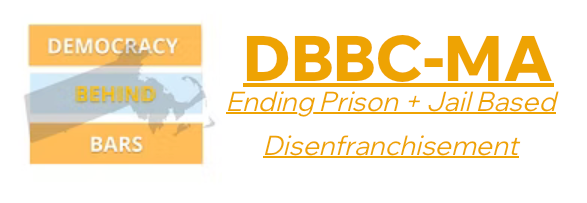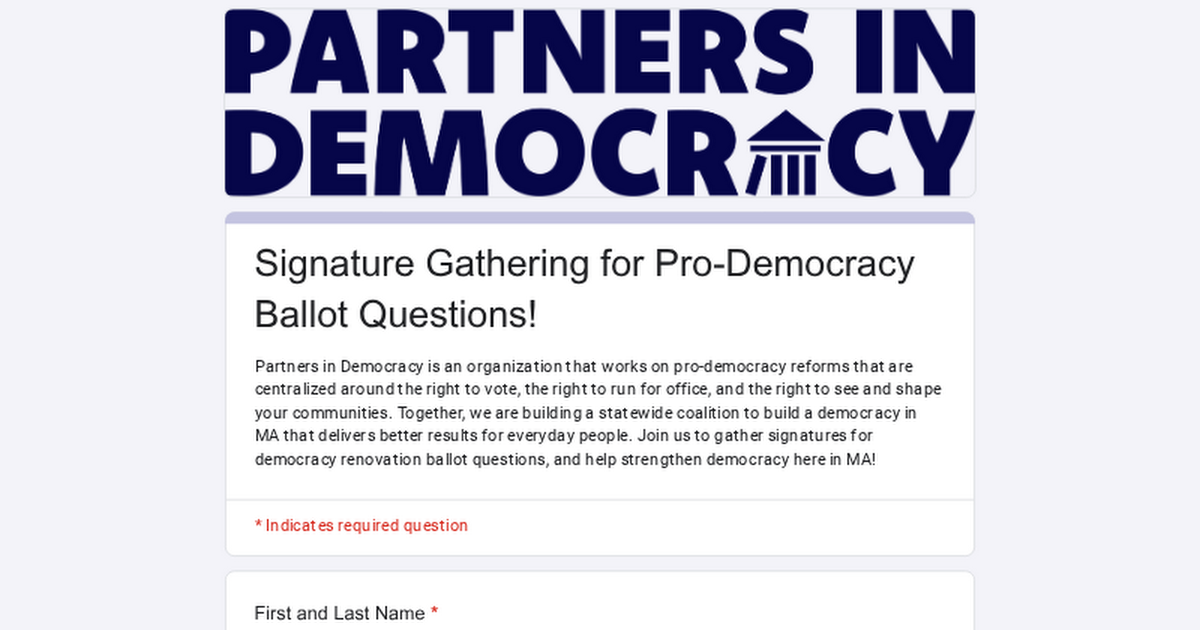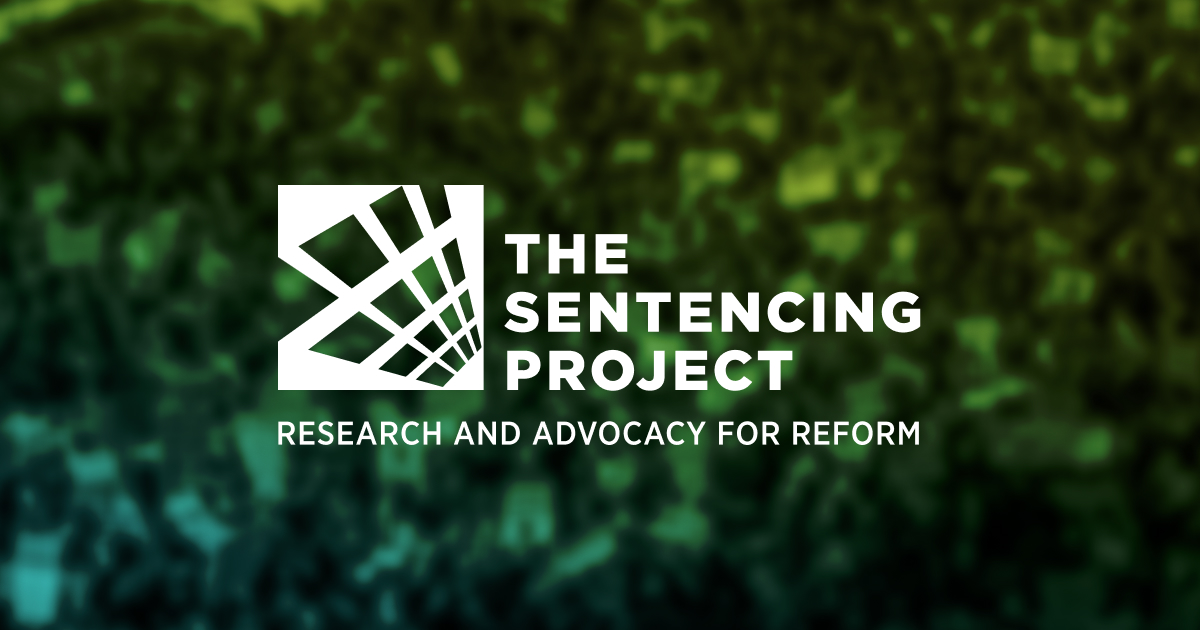Denying Voting Rights Threatens Our Democracy
In 2000, Massachusetts stripped prisoners of the right to vote thanks to a constitutional amendment that voters had passed as a ballot initiative. As a result, over 7,300 citizens are currently barred from voting in Massachusetts because they are incarcerated in a correctional facility for a felony conviction.
Denying any group of citizens the right to vote threatens the rights of all citizens, especially during this dangerous moment in our nation's history. Trump's actions since his inauguration have come straight out of the authoritarian playbook and his administration has shown a willingness to use federal resources stifle dissent. It is vital that we bolster our democratic institutions and protect the civil rights and liberties here in Massachusetts.
Restoring the right to vote to Massachusetts citizens who are incarcerated is also a racial justice issue. Felony disenfranchisement exacerbates the racial injustice built into our state's criminal legal system. According to a 2020 report by the Harvard Law School Criminal Justice Policy Program, Massachusetts "significantly outpaced national race and ethnicity disparity rates in incarceration, imprisoning Black people at a rate 7.9 times that of white people and Latino people at 4.9 times that of white people."
The study also found that Black and Latino defendants are less likely than white defendants to have their cases resolved without going to trial (e.g., pretrial probation, continuances without finding (CWOFs). Black and Latino defendants also received longer incarceration sentences than white defendants facing similar charges. On average, sentences were 168 days longer for Black defendants; 148 days longer for Latino defendants.
In light of these disparities, felony disenfranchisement impacts BIPOC people significantly more than white people living in Massachusetts at a horrifying rate. The Sentencing Project reports that Black residents of voting age are almost six times as likely as non-Black residents to lose their right to vote from being incarcerated for a felony conviction. Latino citizens over 18 are excluded from voting over three times as often that of non-Latino voting-age citizens due to constitutional amendment passed in 2000.
"Racial disparity in the criminal legal system dilutes the political voice of people of color in Massachusetts. Massachusetts should safeguard democratic rights and not allow a racially disparate criminal legal system to restrict voting rights." — The Sentencing Project
Proposed Legislation
Senator Miranda and Representative Erika Uyterhoeven from Somerville have repeatedly tried to amend the Massachusetts constitution to restore voting rights to those incarcerated with felony convictions. They are trying again this session with bills H.63 and S.7
Universal Voting Rights Ballot Initiative
To bolster the chances of successfully removing felon disenfranchisement from our constitution, activists have submitted a ballot initiative proposing this constitutional change. Note that although this initiative is a constitutional amendment, its signature gathering requirements and deadlines are the same as the ballot initiatives listed above.
Maine, Vermont, Washington, D.C., and Puerto Rico have universal voting rights for all voting-age citizens, including those completing a felony-level sentence in prison or jail. It's long overdue for Massachusetts to follow suit.
Recommended Actions
- Sign up to volunteer with Empowering Descendant Communities (EDC) to Unlock Democracy is also coordinating signature gathering for this proposed constitutional amendment.

- Democracy Behind Bars is another organization coordinating the signature gathering for this campaign. Sign up here to volunteer.

- Sign up to volunteer with Partners In Democracy to collect signatures for this ballot initiative campaign as well as the campaigns for stipend reform, Election Day voter registration, and expanding Massachusetts public record law. Working with Partners In Democracy is an efficient way of supporting these campaigns because you can collect signatures for multiple ballot initiatives at once.

- Contact your state legislators to ask them to support H.63 and S.7 that would remove the voting rights exception for "persons who are incarcerated in a correctional facility due to a felony conviction". For additional background on these bill, see here.
- Read and share these essays written by people who have been impacted by Massachusetts felony disenfranchisement law.
- Read this fact sheet from Sentencing Project to learn more about felony disenfranchisement in Massachusetts.

For more background on how this shameful disenfranchisement was added to our state constitution in 2000, check out this timeline history of incarcerated voting rights in Massachusetts from the Emancipation Initiative.







